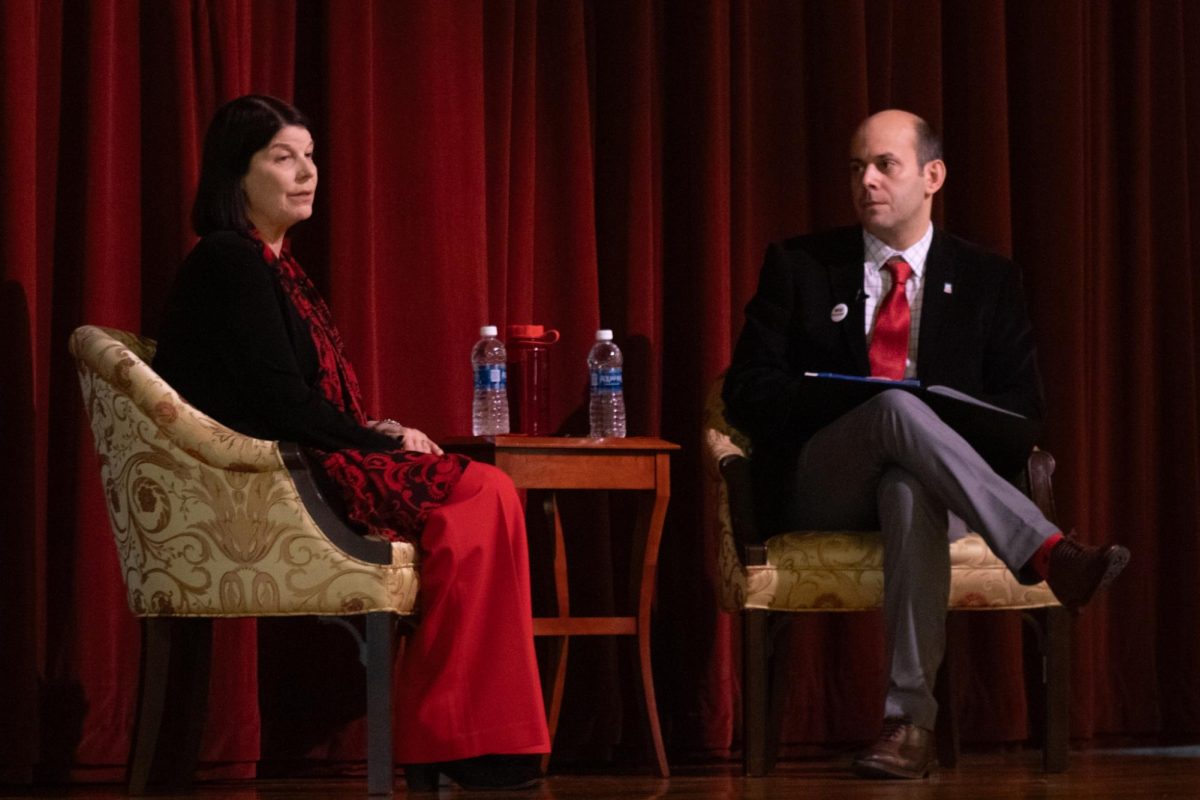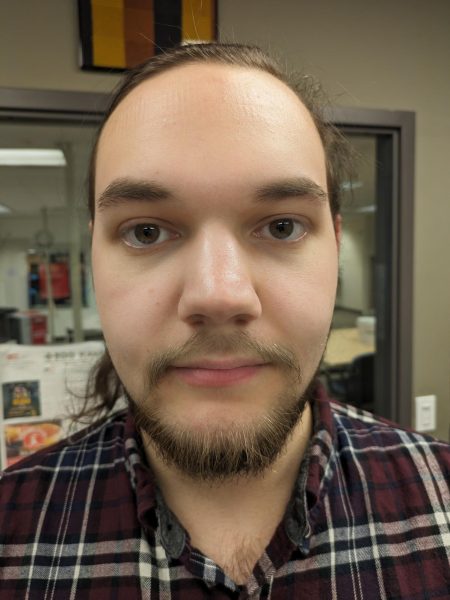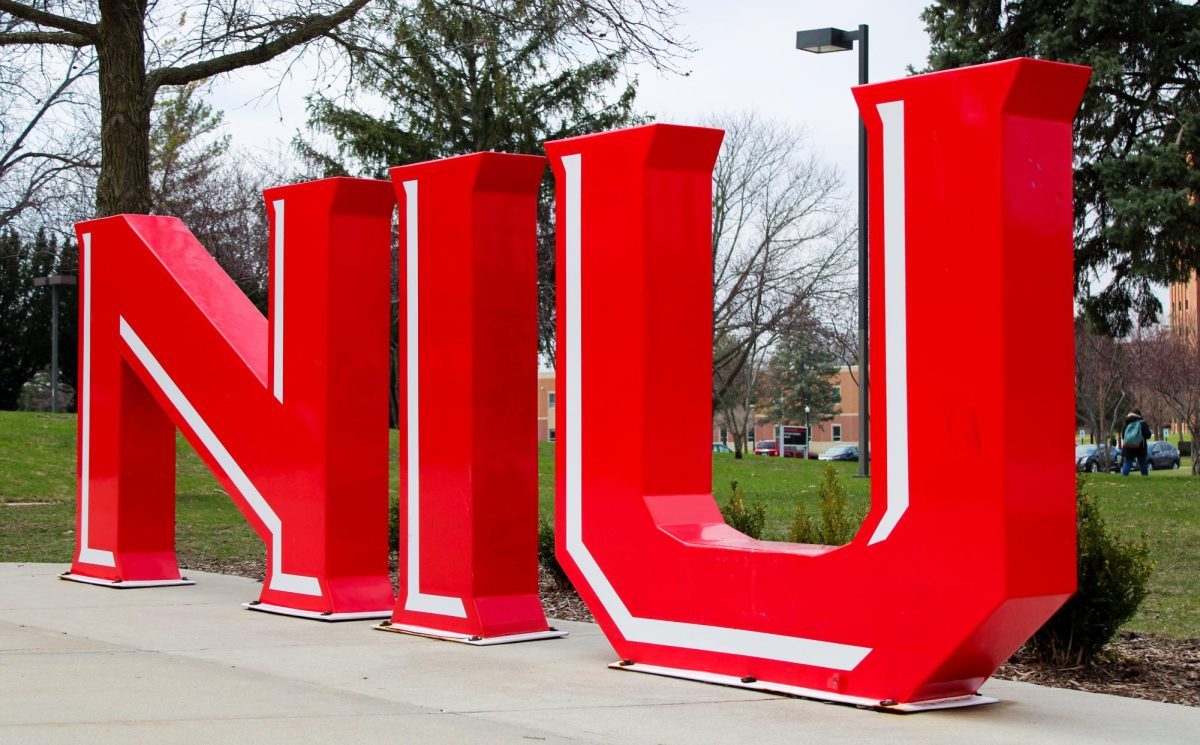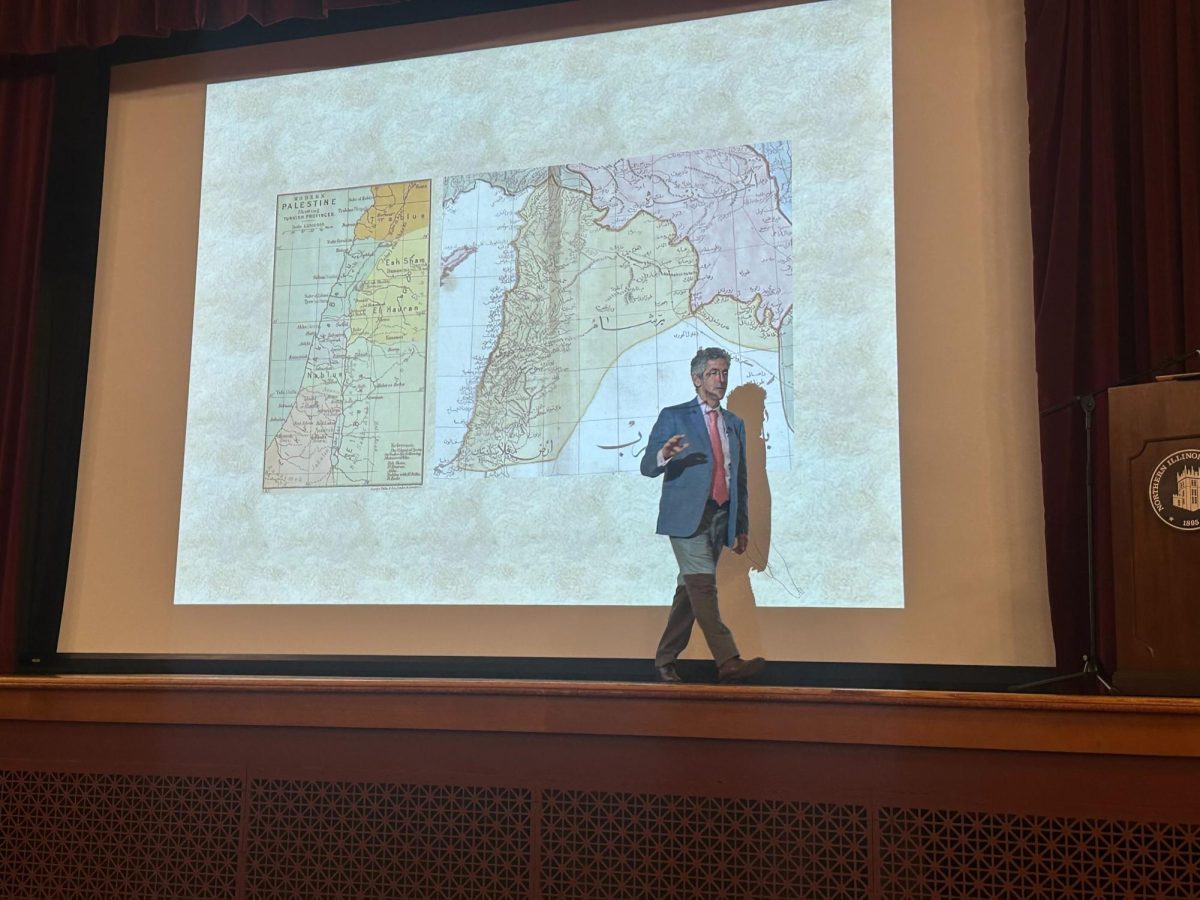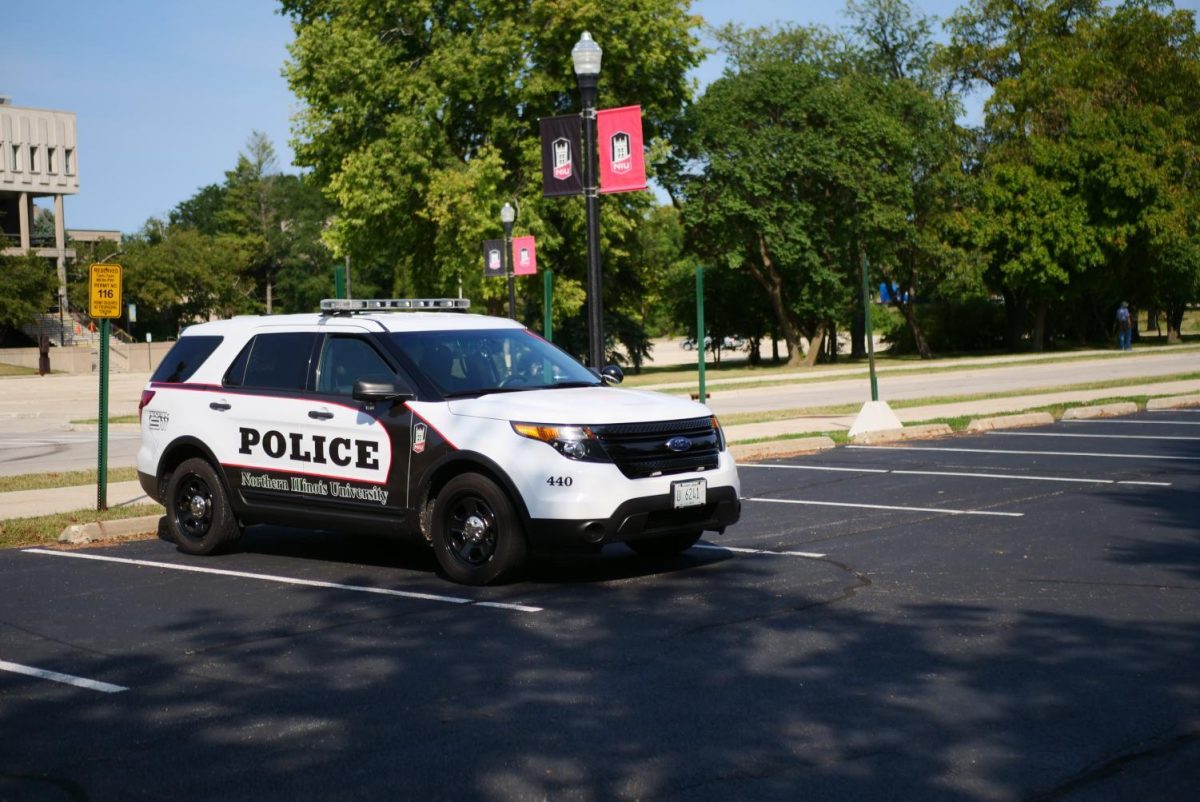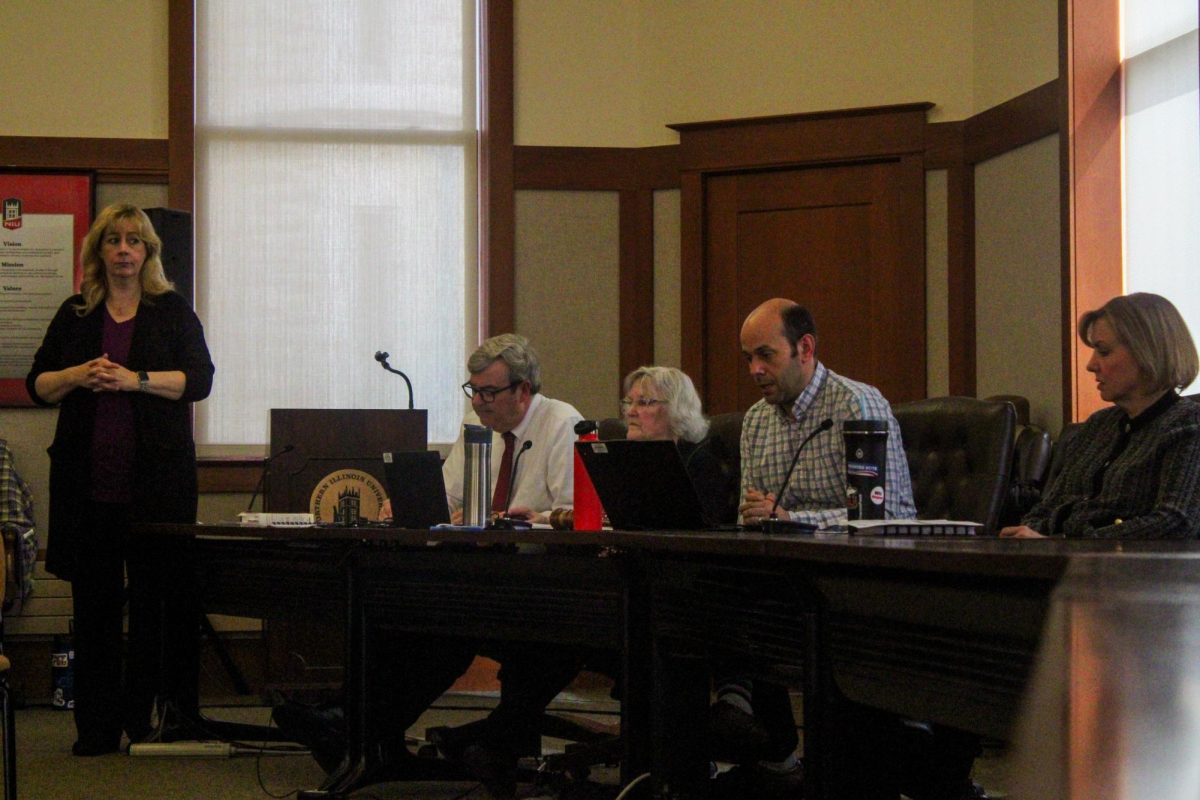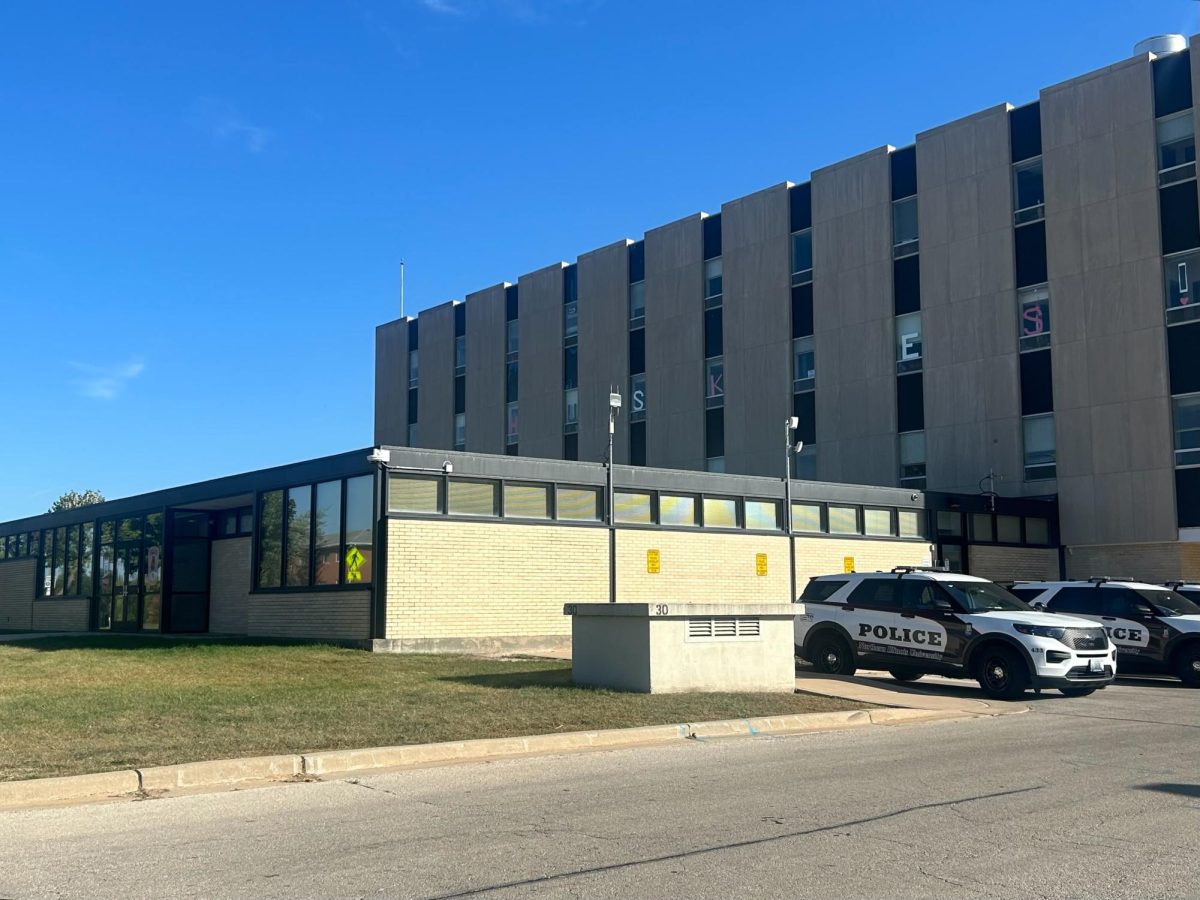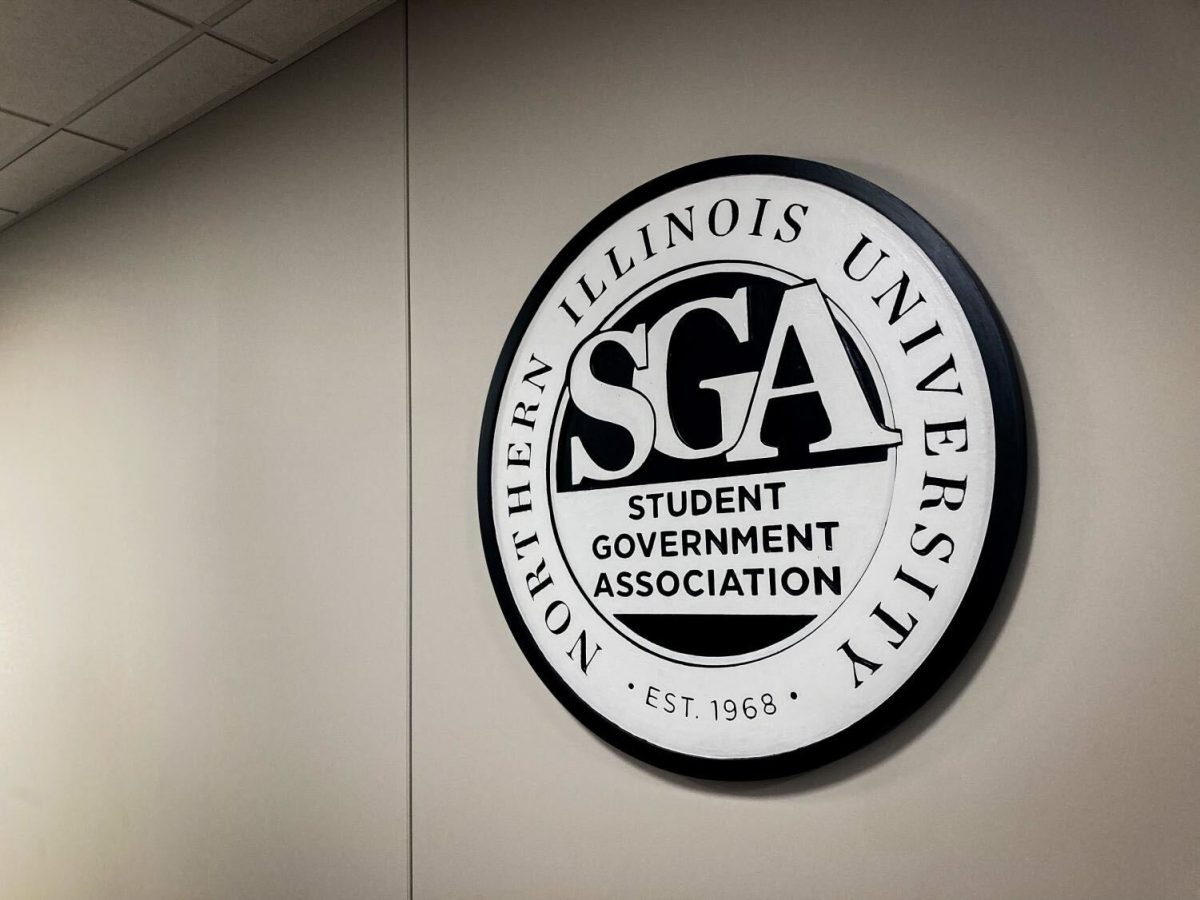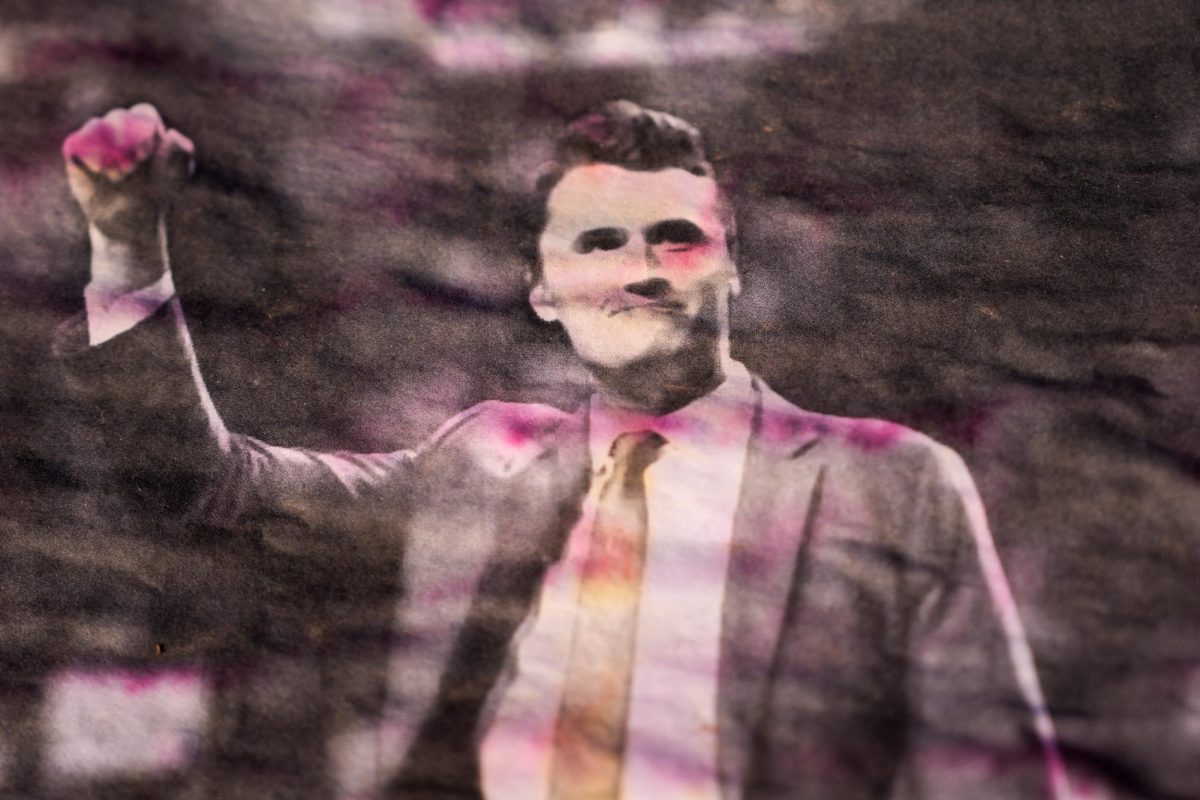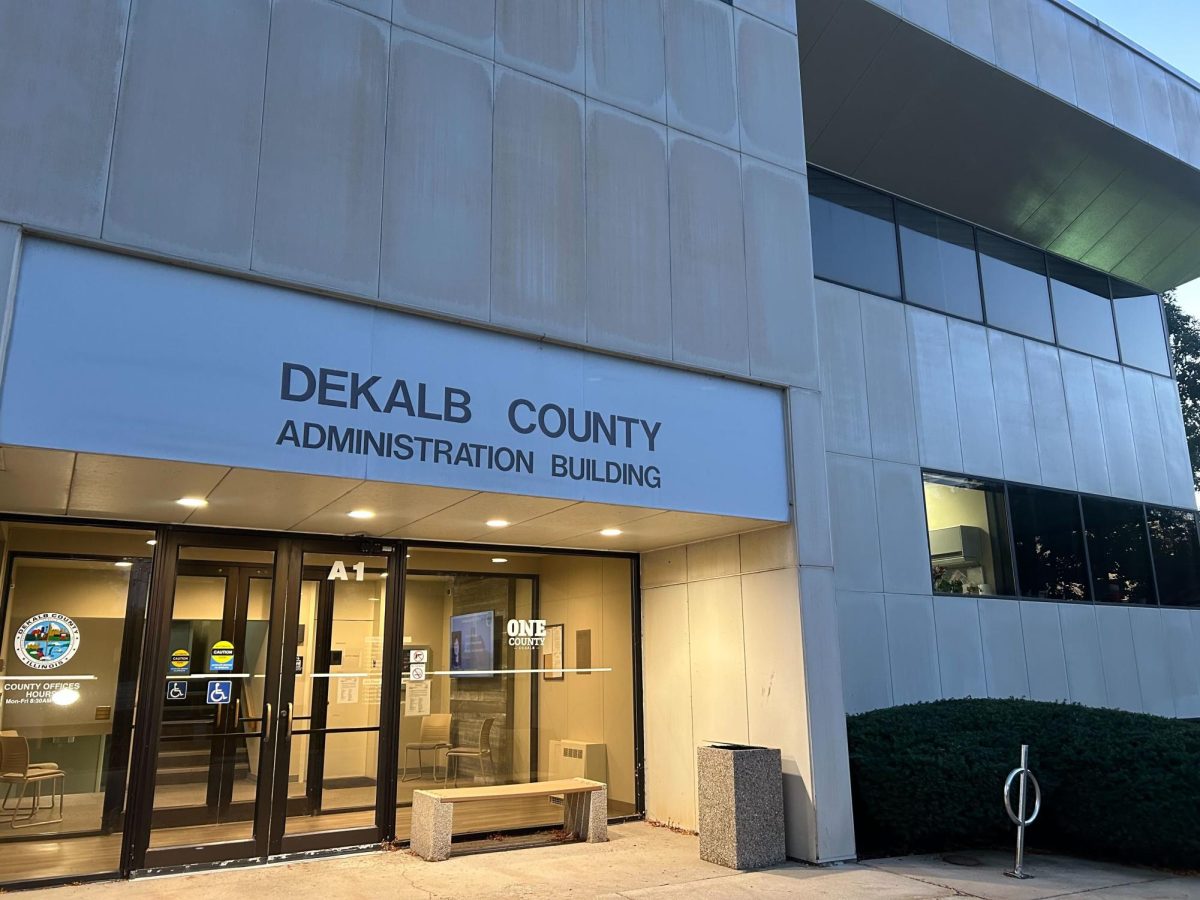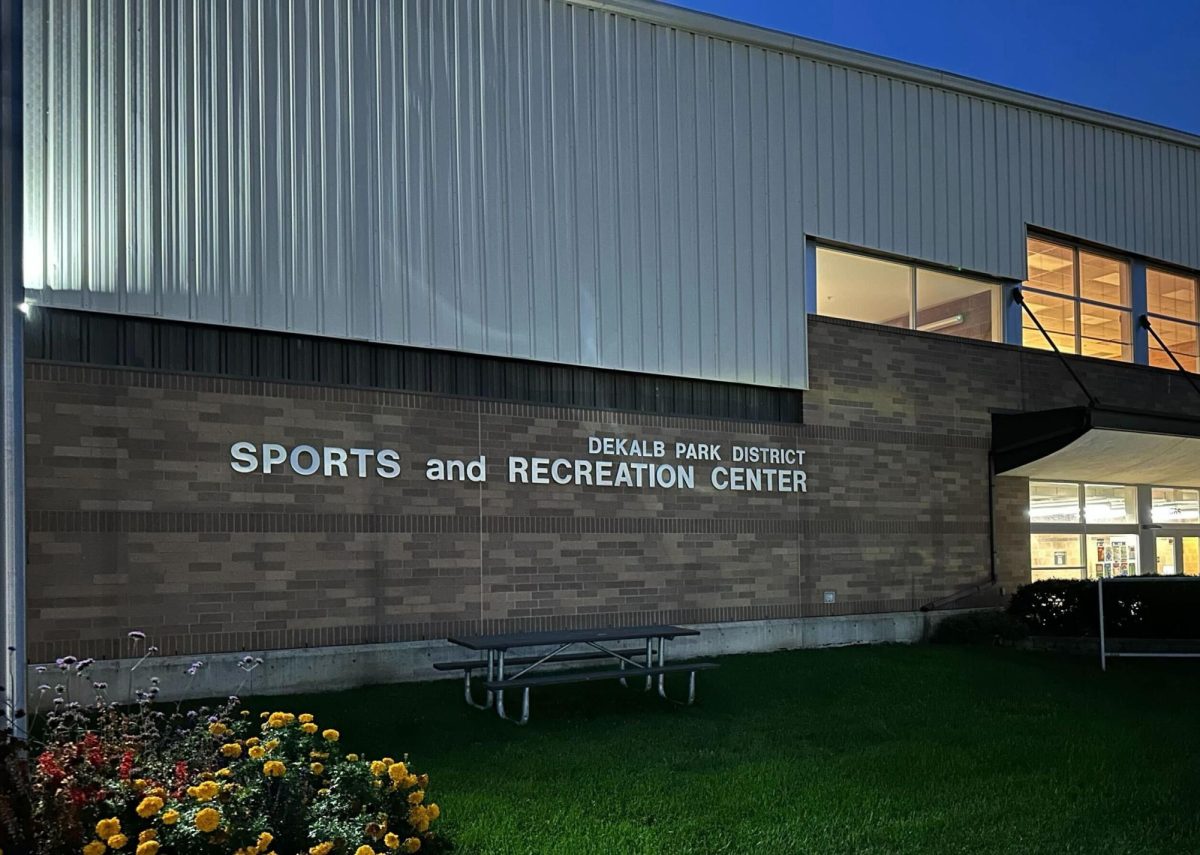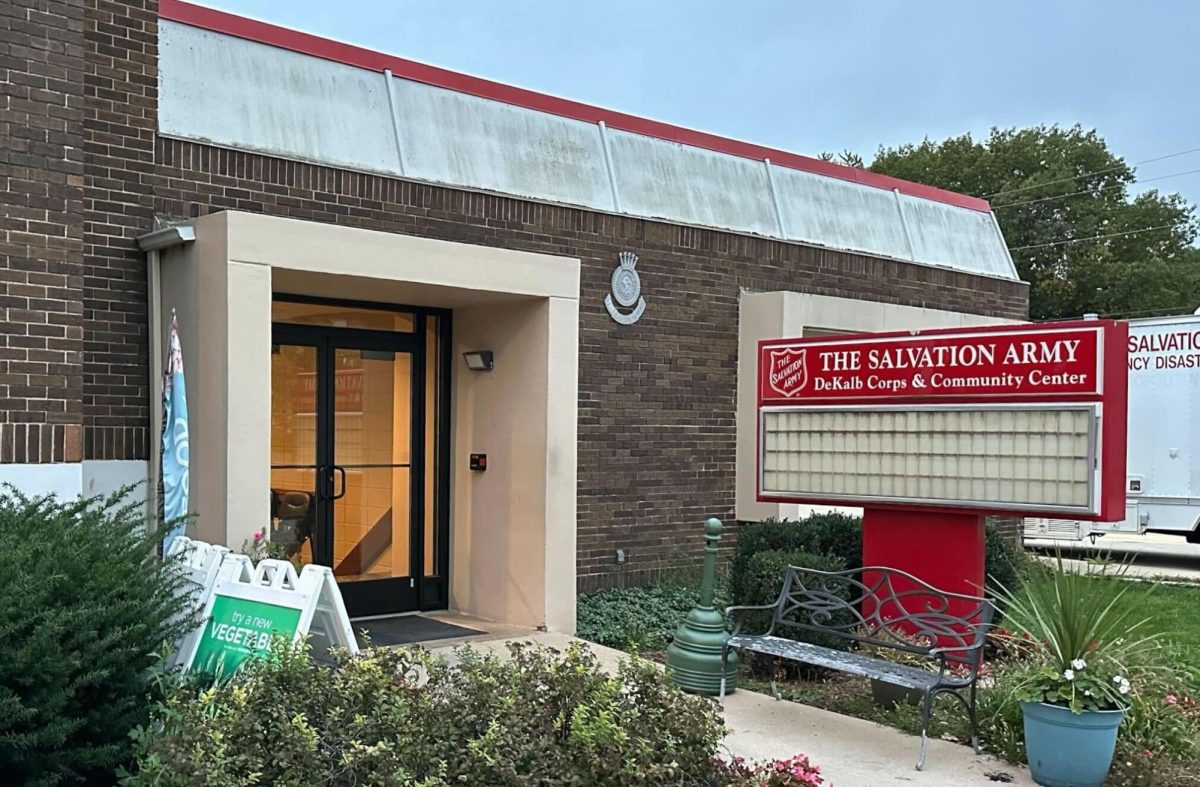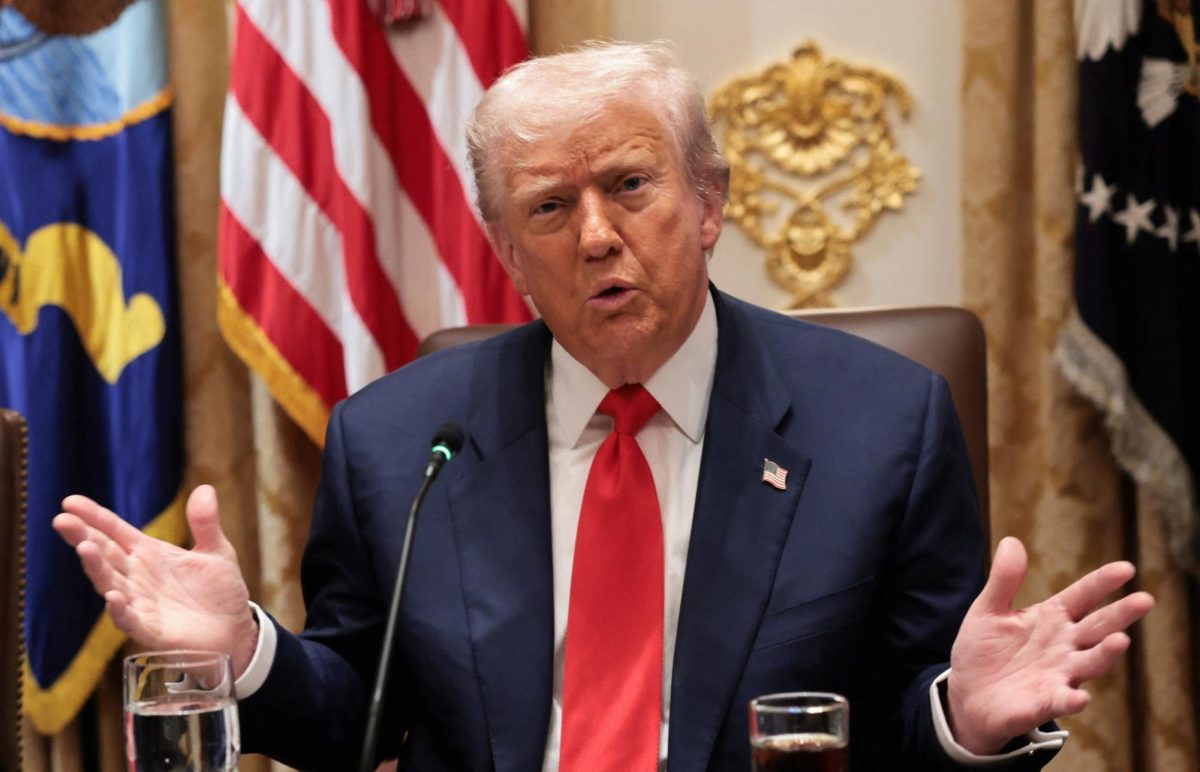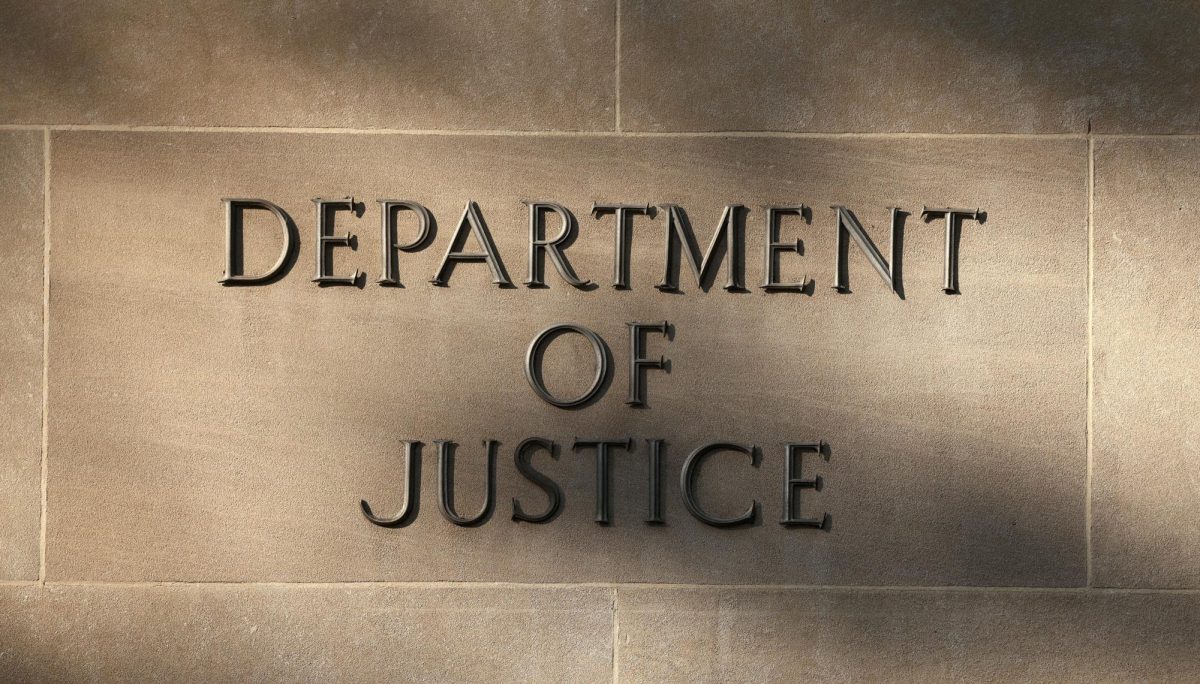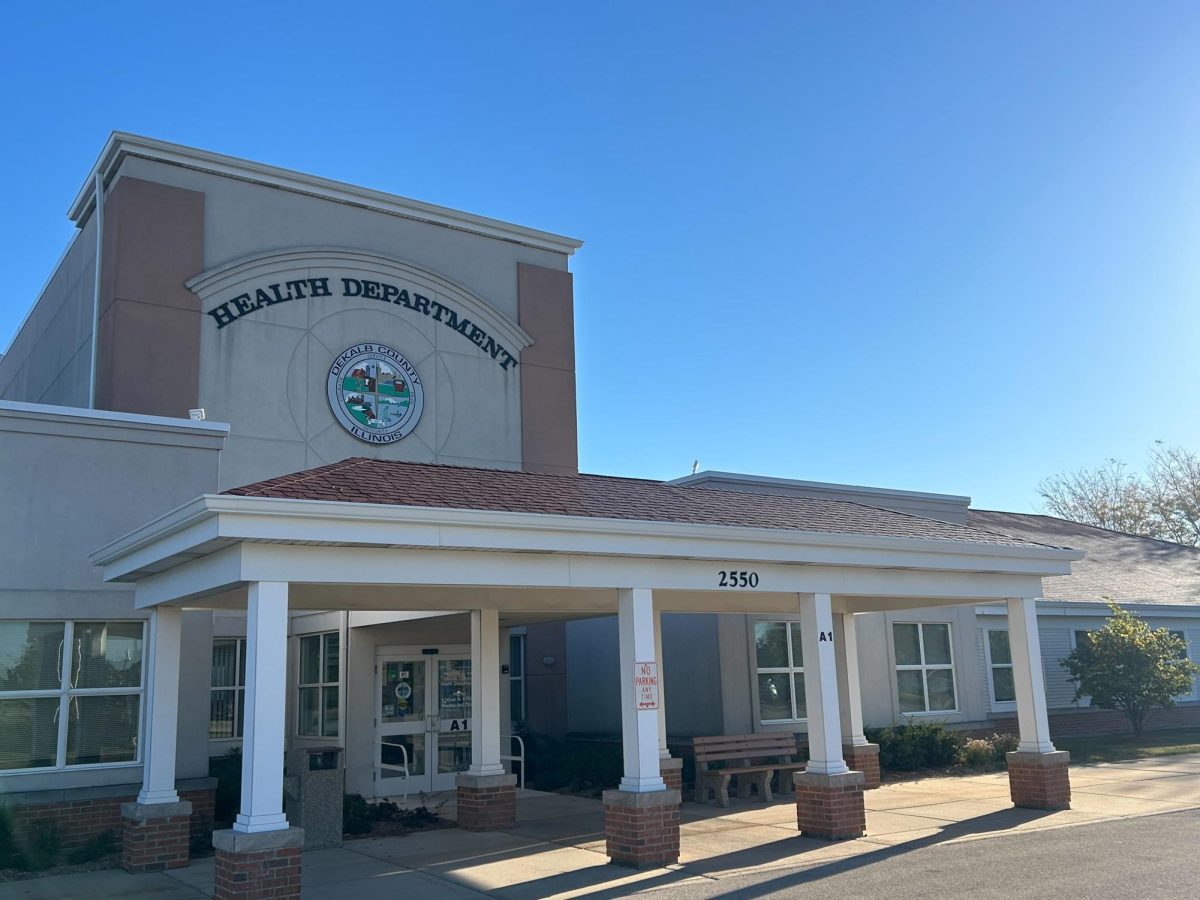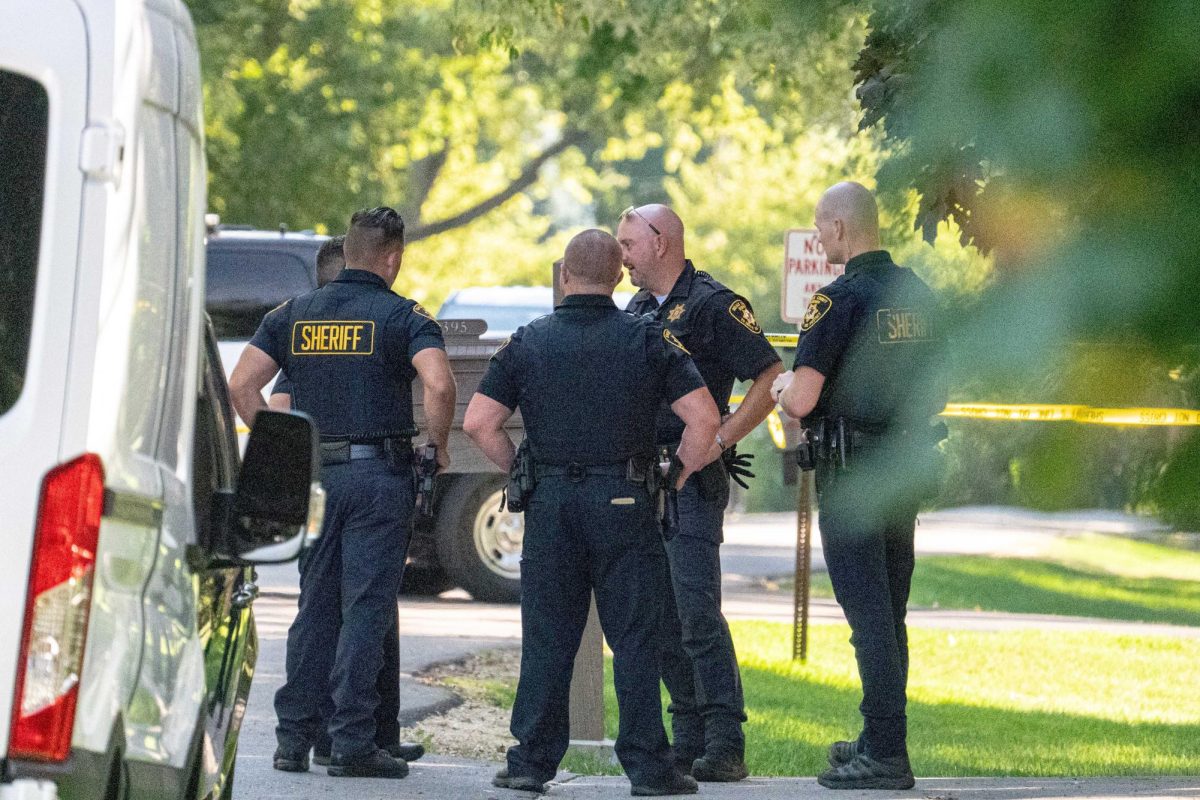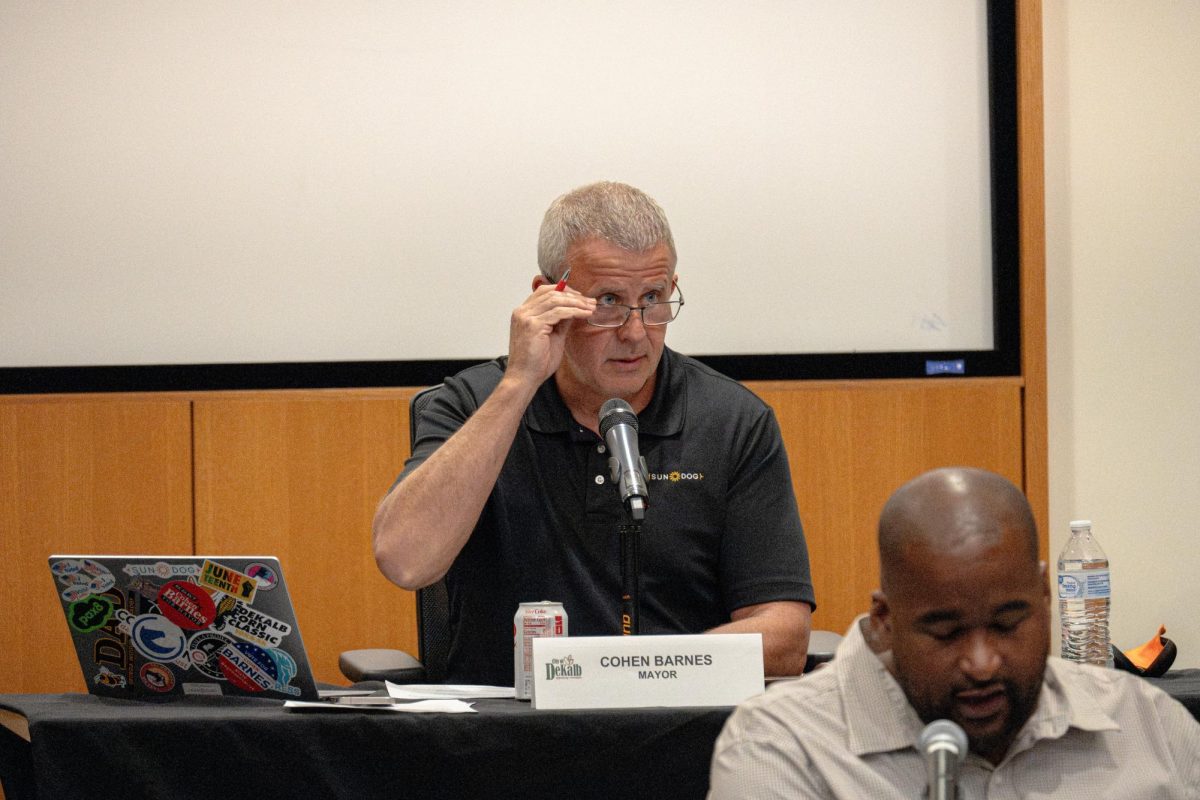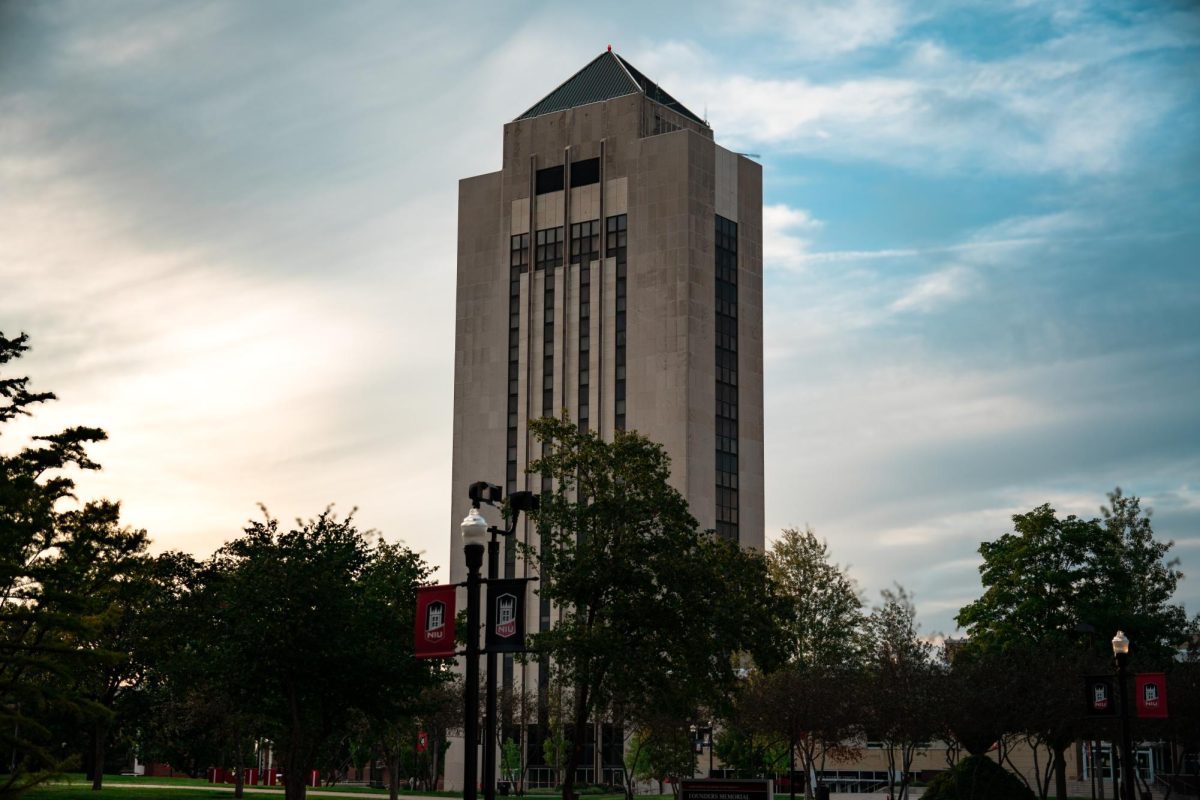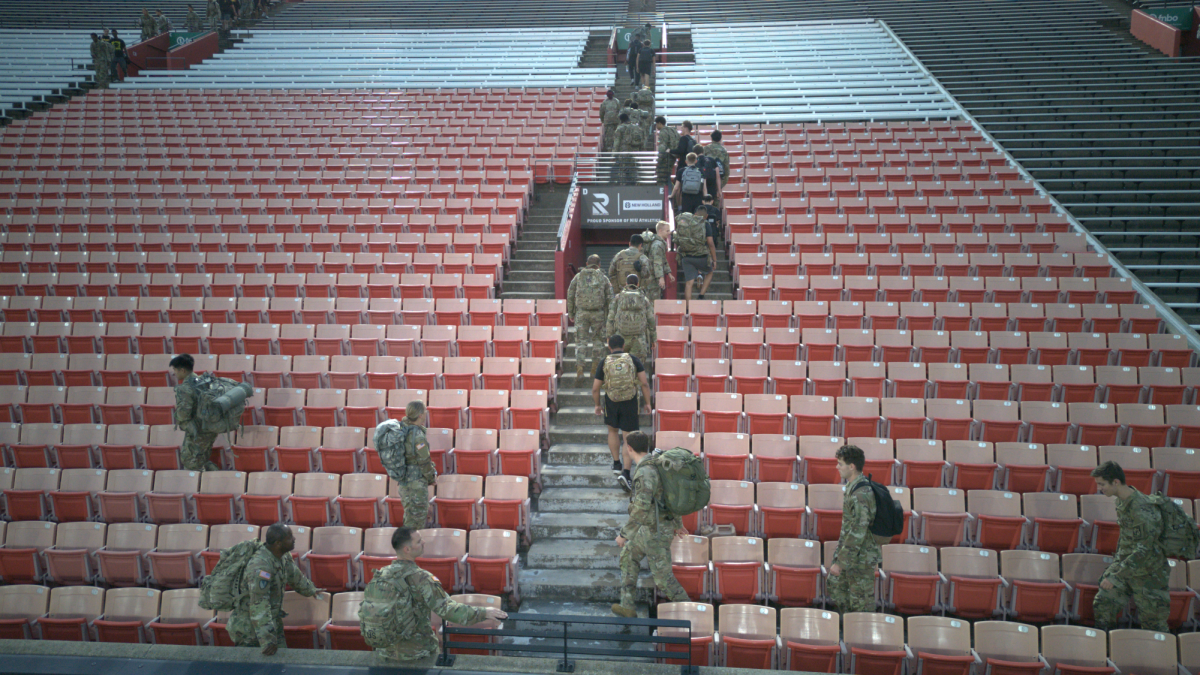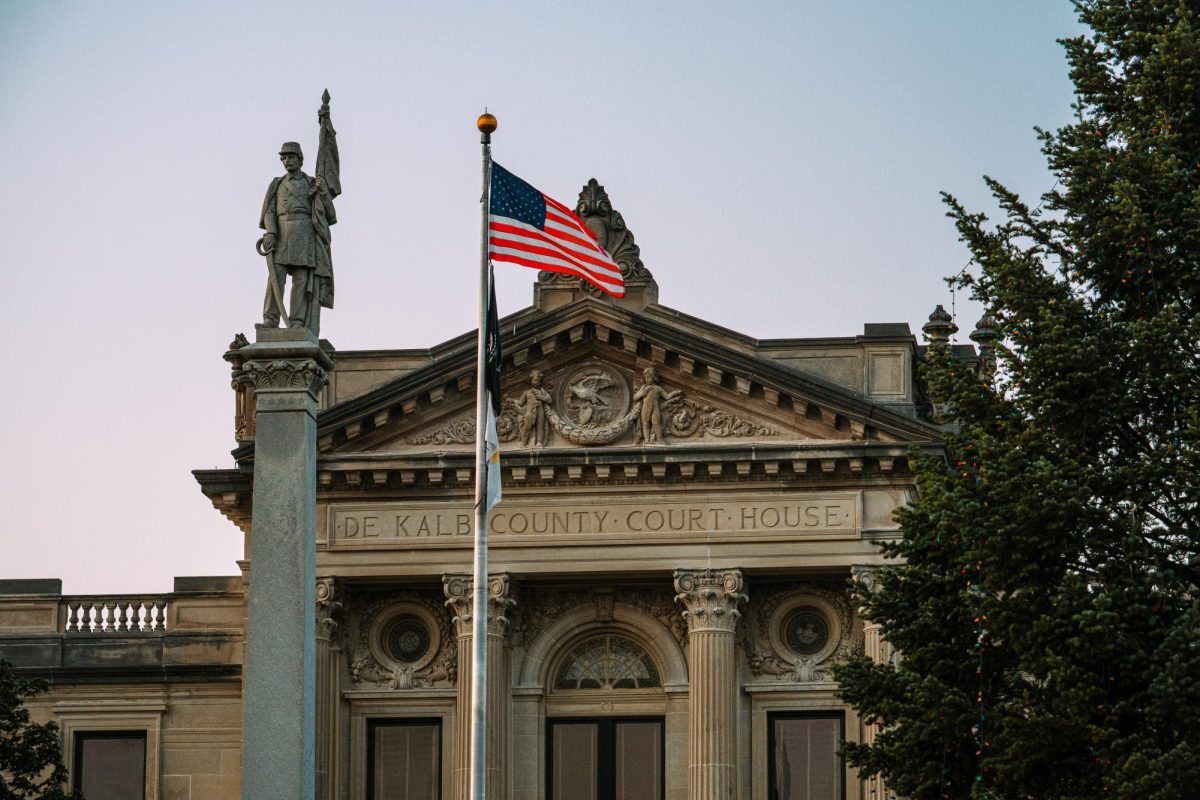DeKALB – President Lisa Freeman spoke at Thursday’s State of the University, advocating for a push for the Illinois Board of Higher Education’s goals, specifically a push to recruit transfer students.
TRANSFER ADMISSIONS
Freeman spoke about NIU’s objective of increasing transfer admission in alignment with state of Illinois goals.
“The biggest emphasis coming out of the governor’s office and the Board of Higher Education in terms of serving students is about improving transfer,” Freeman said.
Freeman said NIU needs to focus on how to adapt to a growing adult population that can potentially return to college to finish their degrees.
“We know that working adults with some college and no degree, working adults who want to upskill for professional advancement are a growing group of potential college students,” Freeman said. “In some ways, they are very much aligned with the students that we’ve always served because the structures aren’t there.”
Freeman said the university is built to serve traditional age college students, and needs to adapt to meet the needs of non-traditional students who have been overlooked.
“I know we have people really interested in doing that and talking about that, but we have to get it right because when they start coming, we’ll have one chance to serve them well and be identified as an institution that does this well. I really want us to be prepared in time. I would say the same thing is true right now.”
Answering an audience question about what keeps her up at night, Freeman said it is important to her for NIU to be recognized for the population of students that it serves.
Freeman said she values the unique place the university is in with the Illinois Higher Education system that allows the university to serve students who have been overlooked or underserved in their respective communities.
“As the state looks at how we fund higher education more adequately and more equitably I’m afraid that our unique identity won’t be valued by the state as much as I value it, and there will be push for us to go to be a more access affordability institution or research institution that doesn’t have those values and that will not be an ideal,” Freeman said.
PRO-PALESTINE PROTEST
Nicholas McKay, a junior Japanese studies major at NIU, approached Freeman after the address.
McKay said he tried to read off a list of three demands but was cut short.
“I was only able to read off the first demand,” McKay said. “Then she (Freeman) had a spiel.”
A flyer the protestors brought demanded NIU retract its statement in response to student protests about the Israel and Palestine conflict, acknowledge the “genocidal” campaign in Gaza and explicitly support Palestinian, Jewish and allied students.
McKay said Freeman talked about interpretations of the slogan “From the river to the sea,” which has been used by protestors in support of Palestine and used in student protests on NIU’s campus.
“She said that there are multiple valid interpretations of that statement, and that we are free to say it, but apparently we are making students scared,” McKay said.
The last 10 minutes of the address included a question and answer session. McKay said the students were not given an opportunity to speak.
“We were told that they had ran out of time for questions, and that the last question would be an online question,” McKay said.
The State of the University address was held in a conversation format between Freeman and Faculty Senate President Ben Creed.
UNIVERSITY ACCOMPLISHMENTS
Freeman spoke about accomplishments such as the University’s strategic enrollment management plans.
“We use data to look at the predictive value of GPA and standardized test scores when we made the decision to say it’s GPA that predicts student success at NIU, so why don’t we use that to make admissions decisions and award merit scholarships?” Freeman said.
Freeman said of the many accomplishments she could cite, she is most proud of the holistic approach taken to strategic enrollment planning.
NIU created a shared equity leadership group that connects ground level leaders with senior leaders.
“We’ve created a structure with six working groups that are completely focused on improving student success and improving faculty success and strengthening our community,” Freeman said. “We have students, faculty and staff working together and talking to each other and bringing forth ideas they might not have a forum to bring forth otherwise.”
ISSUES FACING THE UNIVERSITY
Freeman listed challenges the university faces as it looks to the future:
“Everything seems harder,” Freeman said. “It seems harder because of the pandemic and its lasting social and economic impacts. It seems harder because the world has gotten so much more polarized.”
Freeman cited technological advances, decreases in student enrollment, economic challenges and inflation as additional issues that the University needs to overcome.
“There are changes in the number and the nature of students,” Freeman said. “There are significant economic challenges. There is inflation. There is a drastically changing economy that we have to function within.
Freeman noted the changes in technology, like Artificial Intelligence.
“When we are faced with something that arrives quickly like artificial intelligence we don’t have a lot of time to think about all the ways that we can prepare our students to use it, make sure that our faculty and staff have the opportunity to use it while also looking at the ethical issues that come along with something like that,” Freeman said.


